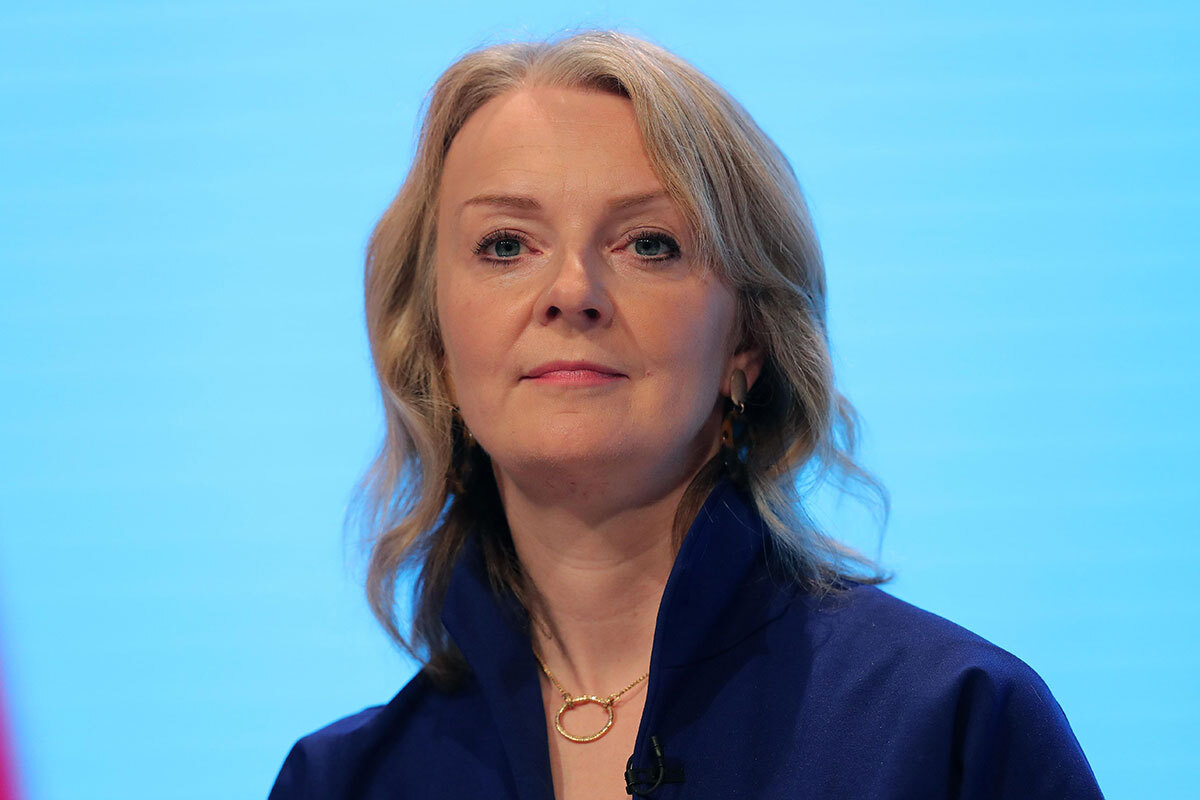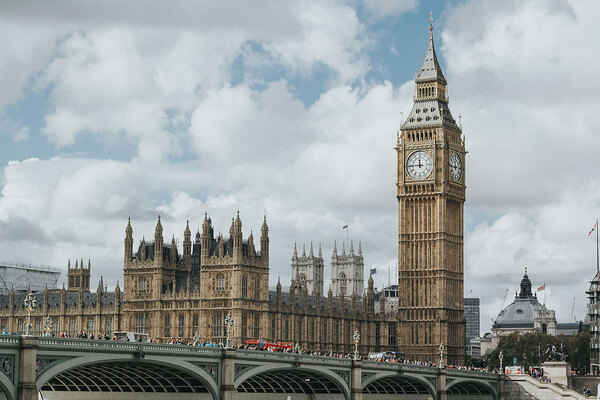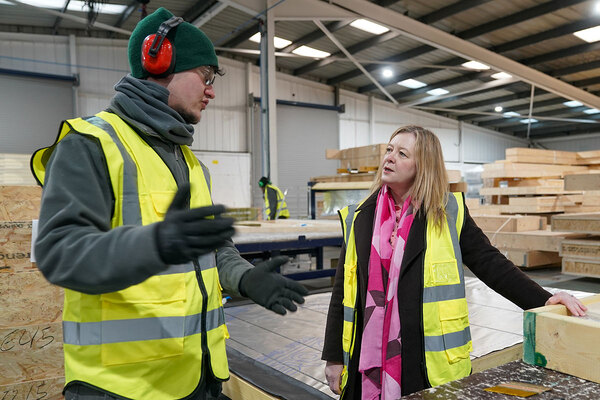You are viewing 1 of your 1 free articles
Liz Truss named prime minister: the housing sector’s reaction
Liz Truss has won the Conservative Party leadership contest and been named prime minister. The housing sector outlines the challenges she faces and what she must do to tackle them
Liz Truss has been voted in by Conservative Party members and been named the UK’s 56th prime minister.
She is taking on the role with arguably some of the most extreme challenges facing a prime minister: the cost of living crisis and the war in Ukraine.
There are also many housing issues facing Ms Truss. Here, the sector responds to her appointment and outlines some of the greatest housing challenges she faces and what she must do to tackle them.
Tracy Harrison, chief executive of the Northern Housing Consortium (NHC): “The NHC and our members are urging the new prime minister to recommit to the levelling-up agenda.
“Seven months ago, Boris Johnson and Michael Gove set out a levelling-up mission to halve the number of non-decent rented homes by 2030. That mission is just as relevant today. Liz Truss must continue the commitment to level up housing quality in the North.”
Fiona Fletcher-Smith, chief executive of L&Q, says the five main priorities for Ms Truss are: delivering a new deal for social housing with residents at the heart; making sure everyone is safe in their home; work with residents and associations to manage the cost of living crisis; build more homes for social rent and shared ownership; and drive decarbonisation efforts forward.
Melanie Leech, chief executive of the British Property Federation: “We urgently need strong government leadership after a period of drift. The new prime minister must address the immediate cost pressures facing businesses and families, but in parallel there must a clear focus on the longer-term objectives to tackle inequalities across the UK and transition to a greener, high-productivity economy.
“We look forward to working with Ms Truss to harness the power and potential of the property sector to deliver the homes, work and leisure spaces that will revitalise our town and city centres and underpin our future prosperity as a nation.”
Rebecca Sycamore, interim chief executive of leading homelessness charity St Mungo’s, said: “During her campaign to become the next Prime Minister Ms Truss confirmed that she is ‘committed’ to the Conservative Party’s manifesto pledge to end rough sleeping in England by the end of this parliament, and we look forward to working with her and her new Government to achieve this.
“The government has published its Rough Sleeping Strategy which we welcomed, but additional action must be taken to prevent people coming to the streets – as we with other members of the sector highlighted to Ms Truss during her campaign.
“We are facing an incredibly difficult winter, which may mean for many that the cost of living crisis will end up costing people their homes.
“It is vitally important that the government does all it can to support those for whom the risk of homelessness is becoming an increasing reality, as well as helping people for whom it already is.
“Without such interventions we may see a significant surge in street homelessness.”
Simon Allford, president of the Royal Institute of British Architects: “As people and businesses grapple with soaring inflation and surging energy prices prompting major fears about heating homes this winter, Liz Truss has a colossal task on her hands.
“While some form of immediate relief is clearly vital, Truss must also prioritise long-term energy-efficiency improvements. This includes protecting funding for Energy Company Obligation (ECO) and implementing a national retrofit strategy to significantly reduce home energy consumption and create thousands of jobs across the country.
“Building safety and planning reforms cannot fall to the wayside. Truss must also prioritise embedding clear, robust building safety and accessibility requirements into regulations, properly resourcing planning departments, and ensuring long overdue planning reforms deliver the types of high-quality homes we need.
“This is an opportunity for the government to refocus and prioritise. Buildings are critical to our quality of life and well-being. Everyone deserves a comfortable, safe and sustainable home, and architects are uniquely placed to deliver that reality. We will be engaging with the prime minister and her government immediately.”
Jim Wood, managing director of Barratt London: “There is a scarcity of ‘obvious’ construction sites left, so many are now looking toward brownfield or even greenbelt sites.
“While the argument to protect the UK countryside is, of course, persuasive, 18% of these sites are described as neglected, derelict buildings and should ultimately be classified as brownfield. According to Unlatch, the number of available brownfield sites available in London could provide enough space for around 355,000 new homes.”
Gillian Charlesworth, chief executive of Building Research Establishment: “The new UK government must ramp up its action on climate change, and central to this should be driving a green transition in the built environment. We were pleased to see the newly appointed prime minister Liz Truss pledging to help people insulate their homes as the UK heads towards net zero. However, we will need to go much further if we are to fully decarbonise the UK’s building stock, which currently makes up a quarter of the UK’s greenhouse gas emissions.
“What’s more, improving the energy efficiency of our homes and buildings is one of the only viable ways to lower energy bills, which are now at record highs and set to rise even further in October. With macroeconomic pressures worsening, rolling out measures to improve the energy efficiency of our housing stock will be paramount in relieving households of the financial pressures they are currently facing.
“This is why we are urging our new prime minister to publish a credible and effective plan to decarbonise our existing homes and buildings. At its core, this would set out a fully funded national retrofit strategy defining energy efficiency measures, such as insulation, for all UK households. This would help to address fuel poverty for thousands of households head on, significantly lower energy bills and ensure our buildings are fit for the future.”
Simon Cox, managing director of Walter Cooper: “When it comes to housing, resolving the issues in planning needs to be one of the top items on the next prime minister’s agenda, and that will mean making some unpopular decisions.
“Truss now needs to shift her focus from pandering to the nimby masses and publicly turn away from previous statements made by other Conservative MPs such as Michael Gove, regarding the so-called ‘cartel’, or face alienating the housebuilding community entirely. However, with a general election likely on the horizon, I’m doubtful these difficult choices will be put into action any time soon.
“Truss may have pledged her commitment to removing planning restrictions in an attempt to boost housebuilding, but in abandoning the government target of building 300,000 houses a year, will her so-called ‘investment zones’ ever really come to fruition?
“I’m not sure, but the fact of the matter is, as prices continue to rise due to a lack of supply, something needs to be done to increase the number of houses built in this country before home ownership becomes further out of reach for all but a select few.”
Nathan Emerson, chief executive of Propertymark: “We congratulate Liz Truss on her successful election campaign and urge her to work with property professionals to find solutions to these major issues facing the sector.
“The spiralling cost of household gas and electricity bills has put the energy efficiency of our existing housing stock into sharp focus. With unilateral EPC [Energy Performance Certificate] rating targets looming, there is currently no long-term plan that sets out how they will be achieved.
“Propertymark is a strong advocate of making homes more energy efficient as the best solution to bringing down bills. However, it is unlikely that significant progress can be made until ministers better understand the current housing stock and then apply realistic targets based on properties’ individual characteristics with sustained funding for homeowners.”
Ross Matthewman, head of policy and campaigns at the Chartered Institute of Environmental Health (CIEH): “[Ms Truss] takes over the running of the country at a vital time, with concerns about inflation, soaring energy bills and the ongoing war in Ukraine threatening our energy security.
“We at CIEH urge prime minister Truss to prioritise strengthening environmental health measures as a means of both meeting these urgent challenges, as well as ensuring the UK remains a world leader in meeting our climate change objectives.
“Whether through immediate policies such as freezing energy bills, reversing the quarterly price cap and targeted energy-efficiency measures to better insulate the poorest households, or through long-term measures such as enhancing air quality targets, tighter regulation of water companies dumping raw sewage in our waterways or ensuring new trade deals either meet or enhance or food standards.
“Prioritising environmental health policies should be at the forefront of this new administration, and we at CIEH look forward to proactively engaging the new government on these urgent and important issues.”
Sign up for our daily newsletter
Already have an account? Click here to manage your newsletters












